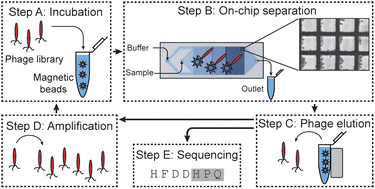Controlling the selection stringency of phage display using a microfluidic device
Abstract
We report the utilization of microfluidic technology to phage selection and demonstrate that accurate control of washing stringency in our microfluidic magnetic separator (MMS) directly impacts the diversity of isolated


 Please wait while we load your content...
Please wait while we load your content...